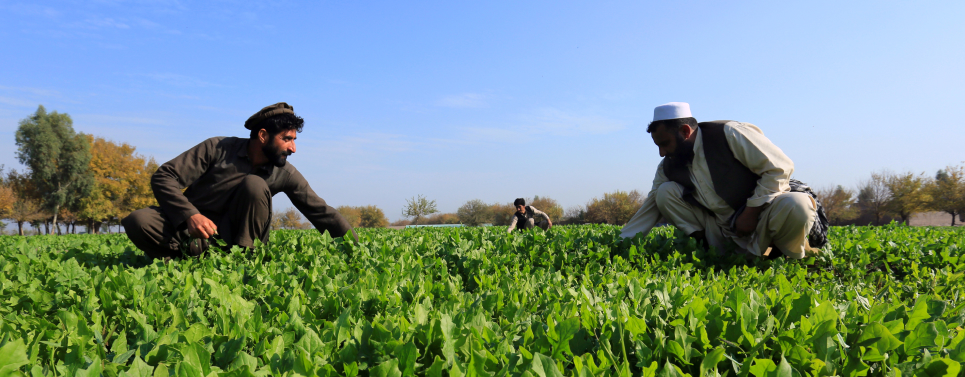Cutting-edge research to improve the resilience, yield and nutritional value of crops is key to feeding a growing global population.
By 2050, the world’s population will reach an estimated 9.7 billion people. To meet demand, food production will need to increase by 70%. Achieving increased productivity requires crops that are more resilient to environmental conditions. The UK supports crop improvement through several pathways:
- In 2016/17, BBSRC invested £71.2 million in crop science research
- Since 2011, DFID has contributed US$631.1 million to CGAIR – the global partnership uniting organisations engaged in food security research
- DFID is the largest donor to HarvestPlus, which supports the development of biofortified crops
Better yields through pest and disease-resistant crops
Globally, 30% of crop yield is lost to insect pests, plant pathogens, and weeds. Improving crops to make them more disease–resistant helps to increase yields.
- Pearl millet: Downy mildew is the most destructive pearl millet disease. The pearl millet variety HHB67-Improved, developed through DFID funding, is resistant to it. It was released throughout India in 2005, and by 2011 losses from downy mildew had decreased by 30% (valued at £7.8 million), improving food security for approx. 3 million people per year.

Better yields through more climate-resilient crops
Drought has the greatest detrimental effect on crops worldwide.
- Wheat: BBSRC-funded research is looking to improve the resilience, recovery and productivity of wheat under drought conditions. They’re researching the modification of a single gene that could enhance drought tolerance.
- Rice: The CGIAR International Rice Research Institute has had major success developing new rice varieties to support 35 million farmers across Asia and Africa and the 3.5 billion people who rely on rice as their staple crop.

More nutritious food through biofortified crops
Nutrient deficiency affects 2 billion people worldwide. Crops can be biofortified to provide these vital micronutrients.
- Sweet potato: HarvestPlus uses traditional plant breeding techniques to biofortify crops. In 2007-2009, it disseminated vitamin A-fortified sweet potato in Mozambique and Uganda, resulting in at least a doubling of vitamin A intake for children and women.
In 2019, DFID announced £33 million funding for HarverstPlus and partners to develop new, biofortified varieties of eight staple food crops.

Advancing research through genome sequencing
Genetic and transgenic improvement of wheat and other crops are high priorities both in the UK and globally. Sequencing the genomes of crop species provides a foundation for the work, and UK researchers have been involved in sequencing the genomes of banana, barley, pearl millet, potato, rice, soybean, wheat, and yam.
Speed breeding improved crops
The current rate at which important crop species can be improved is too slow to meet future demand for food. In 2018, researchers in the UK and Australia developed a ‘speed breeding’ method for crop improvement. Plants are grown in a chamber with controlled lighting and temperature to optimise photosynthesis and promote rapid growth. Most generations of crops species can be grown in a year, meaning genetic improvements can be fast-tracked.
